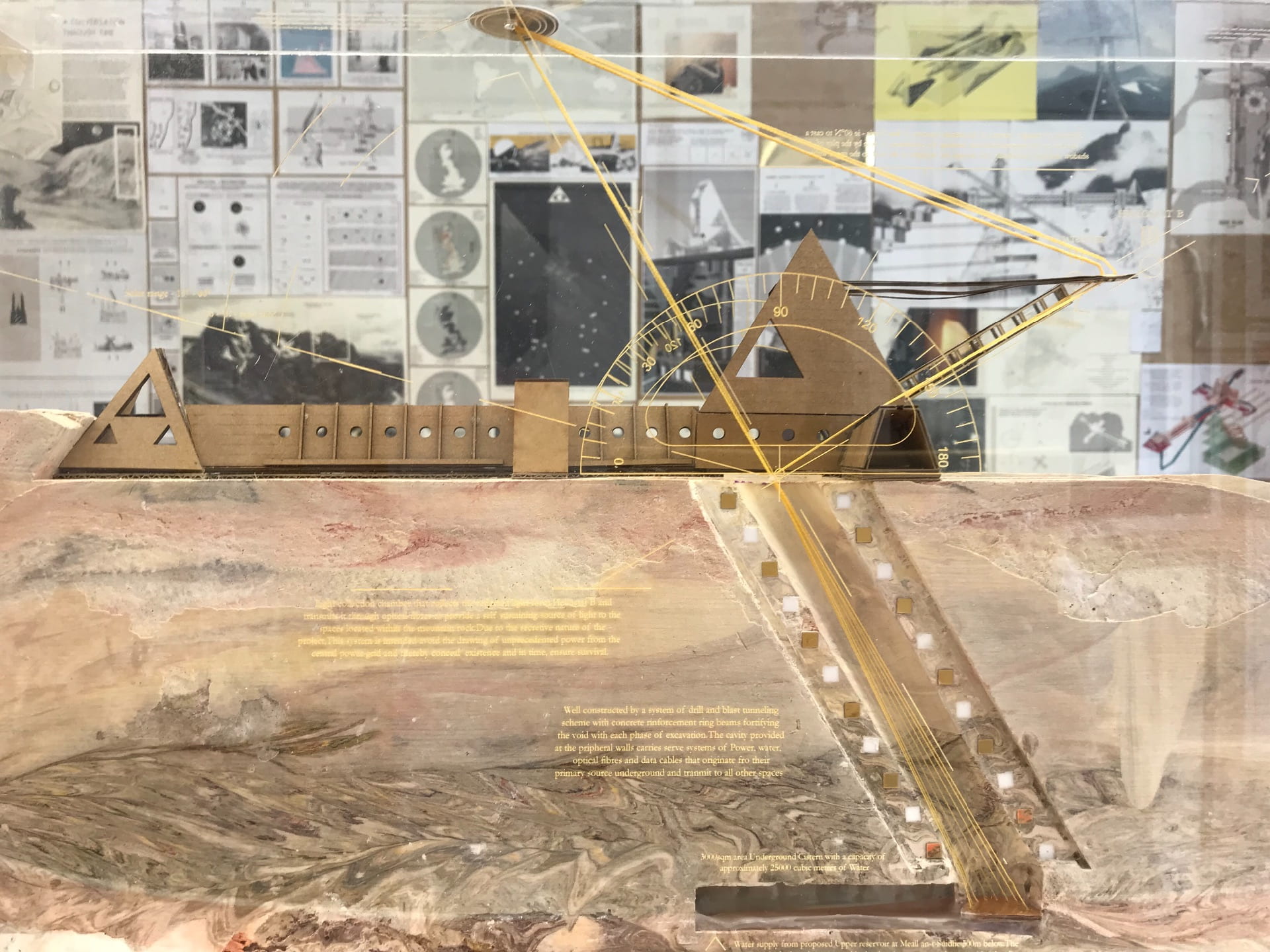
Our 4th year students designed and built an Orgone Accumulator which is a tribute to Wilhelm Reich’s work. This project came into being thanks to the cooperation between our Master of Architecture Course, the Library and the Centre of Experimental Ontology (CEO) run by Graham Freestone.
The 2018 UoL Orgone Accumulator could be perceived as a question, as a memorial to the work of Wilhelm Reich or as a highly successful student project in which the students met the brief of a real client with a budget and real expectations and visions.


The project was not easy to turn from those visions into reality but thanks to external funding from the CEO, the amazing creativity of our students and the dedication of our Architecture Workshop staff, a real Orgone Accumulator was designed, built and enjoyed at the UoL Library from where it began its journey to different locations on campus.

The notion of the Orgone accumulator and Wilhelm Reich, as a visionary, were propelled by American counterculture in the 1960s. Different versions of Orgone Accumulators have been built since then. They were a form of manifesto for people who were searching for other ways of explaining the world and the energy within. If it sounds esoteric, alternative and even anti-scientific – well, that is a product of the culture Reich came to represent –though it is worth remembering he thought orgone research was hard science. The stories of Wilhelm Reich as an alternative anti-establishment researcher who was imprisoned by the FBI, because he allegedly discovered some secrets, add an air of mystery to the legend of the Accumulator. In order to understand the pop-cultural resonance of this idea it is worth watching Kate Bush’s “Cloudbusting” video clip. The how-it-works of the Orgone Accumulator was specified in minute detail by Wilhelm Reich. Some say it is pure pseudo-science, whilst others claim to have had an actual experience that the Orgone Accumulator works, attracting the counter-argument that any effect a is only placebo. The problem that we don’t always like to admit is that we don’t really understand what placebo is.
The accumulator project raised a significant amount of attention locally and globally. The CEO twitter and blog received lots of traffic from all over the world at the release of the accumulator. Local media became interested and there were two radio programs about the device. Not surprisingly, the Orgone Accumulator has attracted believers in Orgone Energy from across Lincolnshire and beyond and has also provoked a series of discussions about the role of science today.
Doina Carter, the MArch course leader, and Dr Kołakowski, year 4 coordinator, who guided the students’ design and construction, can also see other benefits of this project. Of course not all (if any!) students believed in the energy generated by the Orgone Accumulator but the task itself was a valuable process. In the spirit of the Student as producer our University promotes, the efforts of the MAtch 4th year students, as a group and individually, brought to fruition an impressive built project. While working in practice, architects cannot always put their own convictions over a client’s wishes. Le Corbusier, who was an atheist, designed the Chapel Ronchamp – a celebrated Christian place of worship.
As for the all important question of how much energy can our accumulator absorb and release. the answer is here:
NB: On 28 March 2018, BBC Radio Lincolnshire will broadcast a program featuring an interview with Graham Freestone and Dr Marcin Kolakowski about the Orgone Accumulator project. This is already the second radio broadcast about the Accumulator. The first was aired by the local Siren Radio. It seems that our Accumulator is getting famous in the media and, at the same time, among believers in the Orgone power, as they have started to visit the Accumulator, now open to the public until June in the University Library.
text: Marcin Kolakowski, Doina Carter
technical support for fabrication: Alan Gill, Kenny Cromar
photos: Nefeli Konstantina Alexaki, Doina Carter, film: Jill Zhao
